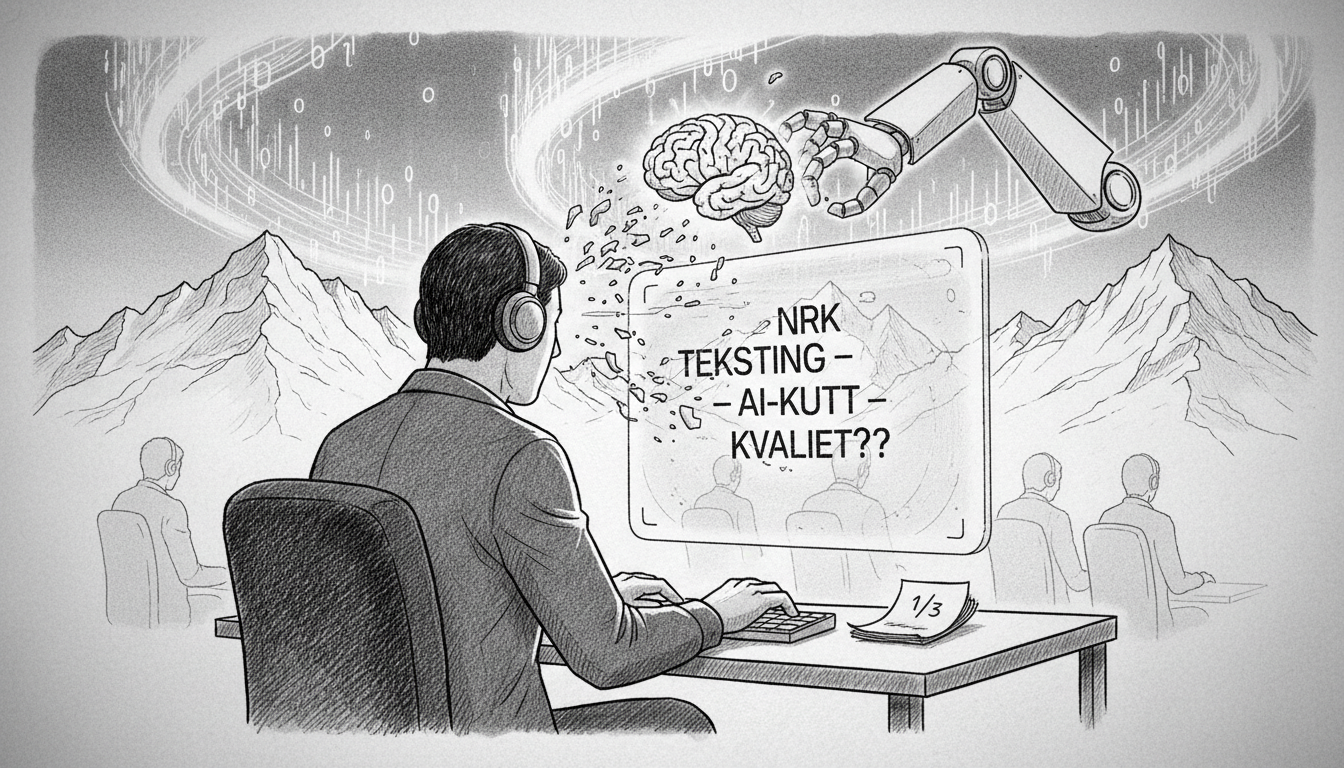Norway's public broadcaster is making major changes to its subtitling operations. The organization plans to use artificial intelligence to handle translation work. This decision means substantial pay cuts for human subtitlers.
In early October, television subtitlers received notice about new working conditions. The broadcaster introduced two new types of assignments during a trial period. These include machine-translated subtitling and machine-generated subtitling.
The practical effect means subtitlers will now edit text that artificial intelligence has already translated. The payment rates for these AI-assisted jobs amount to roughly one-third of traditional full subtitling fees.
Subtitlers worry their hourly wages will drop substantially. They also fear they will need to deliver lower quality products, according to the head of the Norwegian audiovisual translators association.
The association leader finds it unacceptable that subtitlers must bear financial risk during the testing phase. He suggests the natural approach would maintain normal pay during trials and evaluate results afterward.
The broadcaster's editorial manager defends the pay reductions. He argues that using one-third of the work time should naturally reflect in the compensation.
This move reflects broader trends affecting media workers across the Nordic region. Public broadcasters face increasing pressure to reduce costs while maintaining service levels. The integration of artificial intelligence into creative fields creates new tensions between efficiency and quality.
Norway has strong labor protections and traditionally values high-quality media content. The subtitling changes test these norms as organizations seek technological solutions to budgetary constraints.
International viewers might notice changes in subtitle quality on Norwegian programming. The shift could also influence how other Nordic broadcasters approach translation services. Sweden and Denmark face similar economic pressures in their public media sectors.
The trial period will reveal whether AI-assisted subtitling meets Norwegian quality standards. Both cost savings and viewer experience will determine if this approach becomes permanent.
Media unions across Scandinavia monitor this development closely. The outcome could set precedents for how artificial intelligence transforms creative professions throughout the region.

